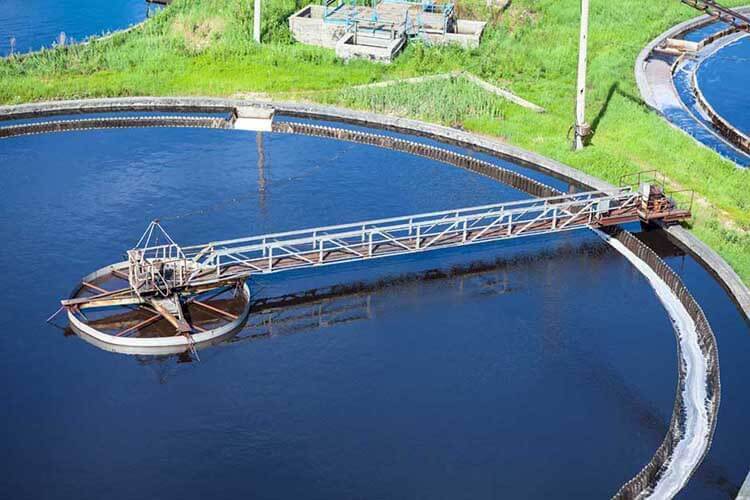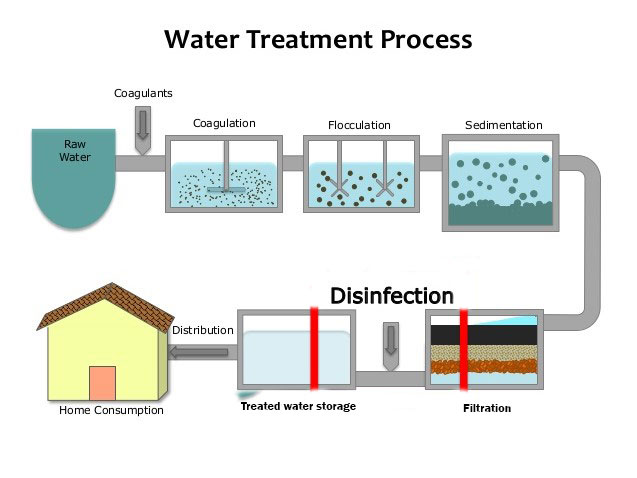Water Technology Startups: Common Risks and How to Minimize Them
The Significance of Water Technology Startups in Resolving Worldwide Water Difficulties
Water scarcity continues to be a pushing worldwide issue, intensified by environment modification and population development. In this context, water Technology startups arise as necessary players, providing cutting-edge services that boost efficiency and sustainability. Their advancements, from clever sensors to enhanced desalination methods, are improving water administration techniques. Nonetheless, the extent of their effect and the difficulties they encounter in collaboration with well established authorities increase important questions concerning the future of water access and top quality.
The Current State of International Water Deficiency
As water shortage significantly comes to be a pushing international issue, several regions are experiencing considerable tension on their water sources. According to current research studies, over 2 billion individuals stay in nations dealing with high water tension, with forecasts suggesting that this number could rise dramatically in the coming years. Environment adjustment, populace development, and insufficient infrastructure are aggravating the situation, causing over-extraction of freshwater resources and diminishing groundwater levels. Agriculture, which makes up around 70% of worldwide water usage, experiences inefficient methods, additionally straining availability. Urban areas, particularly in creating countries, face aging systems that can not satisfy climbing demands. This diverse situation not only intimidates human wellness but also undermines food safety and security and financial stability. The urgency to address water deficiency has never been better, engaging governments and companies to look for lasting remedies to take care of and shield this necessary source.
Ingenious Solutions: How Startups Are Transforming Water Management
Water Technology startups are introducing innovative services that improve water management practices. Advancements such as smart water sensing units, advanced desalination methods, and effective wastewater reusing systems are reshaping how water resources are used and saved. These improvements not just deal with present challenges but additionally lead the way for lasting water usage in the future.
Smart Water Sensors
Advancements in wise water sensors are changing water management by providing exact information and real-time surveillance capabilities. Startups are creating advanced sensing unit technologies that can find leakages, screen water top quality, and maximize use in various environments. These sensors make it possible for services and districts to make enlightened choices relating to water preservation and infrastructure upkeep. By using IoT connection, wise water sensors help with smooth information transmission and integration with existing management systems. This not only boosts functional performance yet likewise reduces expenses related to water loss and contamination. In addition, the scalability of these solutions enables widespread adoption, offering a course toward sustainable water source monitoring. On the whole, wise water sensing units represent a substantial innovation in dealing with worldwide water challenges.
Desalination Innovations
While standard desalination techniques have run the gauntlet for their high energy intake and environmental effect, startups are pioneering ingenious options that assure to change this necessary procedure. These business are developing sophisticated innovations such as solar-powered desalination systems, which harness renewable resource to minimize carbon impacts. Additionally, some start-ups are exploring onward osmosis and membrane layer purification strategies, which greatly lower energy demands compared to standard strategies. In addition, advancements in products science are bring about the creation of extra effective membranes that improve water removal rates while reducing waste. By integrating artificial knowledge and maker knowing, these startups also optimize functional effectiveness, making desalination much more lasting and economical. Collectively, these advancements show a change towards a much more practical future in water management.

Wastewater Recycling Solutions
As the demand for lasting water administration increases, startups are arising with groundbreaking wastewater reusing remedies that guarantee to improve exactly how neighborhoods come close to water scarcity. These innovative companies utilize progressed technologies such as membrane layer bioreactors and organic filtration systems to treat and repurpose wastewater for various applications, consisting of agricultural irrigation and commercial procedures. By transforming waste into a valuable source, these start-ups not only reduce the pressure on freshwater resources but additionally contribute to environmental sustainability. Furthermore, a lot of these solutions are developed for scalability, enabling neighborhoods of all dimensions to apply reliable recycling systems. As awareness of water deficiency grows, the duty of these startups ends up being progressively important in fostering resilient water monitoring methods worldwide.
Study of Successful Water Technology Startups
The landscape of water Technology start-ups showcases impressive innovations in cutting-edge purification remedies and lasting water management methods. These business have actually established unique techniques to deal with pushing water difficulties, showing their capacity for considerable influence. By examining details instance research studies, one can get insights into the approaches that have led to their success in the market.
Cutting-edge Purification Solutions
Ingenious purification solutions have actually become an essential focus for water Technology startups, dealing with the expanding demand for clean and secure alcohol consumption water. Business like Zero Mass Water have pioneered solar-powered hydropanels that extract wetness from the air, giving lasting drinking water in dry regions. Likewise, the startup Aquasana has actually established sophisticated purification systems that remove pollutants like lead and chlorine, guaranteeing greater water high quality for households. An additional significant example is the startup LifeStraw, which creates portable water filters, ensuring drinking water obtainable in disaster-stricken areas. These instance research studies show just how ingenious filtering technologies are transforming water availability and security, highlighting the necessary function of start-ups in tackling worldwide water obstacles and enhancing public health and wellness end results worldwide.
Sustainable Water Monitoring
While the obstacles of water shortage and inefficient usage continue around the world, numerous start-ups are leading the means in lasting water management. One notable example is a startup that established a clever irrigation system, using data analytics to enhance water utilize in farming, noticeably reducing waste. An additional situation entails a firm that created a modular rain harvesting system, allowing city locations to record and utilize rainwater properly, consequently easing pressure on metropolitan water materials. In addition, a startup focused on wastewater recycling has effectively executed Technology that transforms sewage right into potable water, demonstrating a cutting-edge approach to resource healing. These case studies show how water Technology start-ups are not only attending to immediate water difficulties but also adding to lasting sustainability in water monitoring.
The Role of Technology in Water Quality Enhancement
Advancements in Technology are considerably changing water high quality improvement efforts throughout the globe. Cutting-edge solutions, such as real-time tracking systems, allow the detection of contaminants and pollutants, enabling for quick reaction measures. These systems utilize data and sensing units analytics to supply workable insights, making sure water resources stay risk-free for intake.
Additionally, advanced purification technologies, consisting of membrane filtering and UV sanitation, boost the removal of hazardous bacteria and chemicals from water supplies. Water Technology startups are introducing these techniques, making clean water extra cost effective and available.
Moreover, artificial knowledge and device knowing are optimizing treatment processes, anticipating possible water quality issues before they escalate - Water Technology Startups. By taking advantage of huge information, these innovations promote educated decision-making for water monitoring, ultimately leading to improved public wellness outcomes. Collectively, these developments highlight the essential role Technology plays in addressing global water high quality obstacles, promoting a much more sustainable and resistant future

Collaborations Between Startups and Established Water Authorities
As water high quality challenges magnify, partnerships between start-ups and well-known water authorities are coming to be crucial for effective services. Startups commonly bring cutting-edge modern technologies and active methodologies, while established authorities supply regulative expertise, funding, and framework. These collaborations allow the quick implementation of novel solutions made to attend to details water high quality issues. Startups can develop innovative purification systems or real-time surveillance devices, while authorities can facilitate pilot programs that examine these innovations in real-world setups. By leveraging their corresponding strengths, both events can increase the fostering of new technologies, eventually leading to enhanced water quality and sustainability. Furthermore, such more info cooperations foster expertise exchange, aiding startups to refine their items based upon governing demands and sensible obstacles dealt with by water authorities. This harmony not just enhances operational performance yet also drives the development of water Technology in its entirety, positioning both start-ups and developed authorities as principals in dealing with worldwide water crises.
The Future of Water Technology: Forecasts and trends
With raising problems over water shortage and top quality, the future of water Technology is positioned for transformative changes driven by development and sustainability. Emerging fads suggest a shift towards decentralized water monitoring systems, which equip local communities and lower dependence on massive infrastructure. Additionally, improvements in smart water innovations, such as IoT sensing units and information analytics, promise improved tracking and efficiency in water usage.
Forecasts suggest that water recycling and desalination innovations will certainly become extra widespread, dealing with journalism need for alternative water resources. The combination of renewable power in water treatment processes is anticipated to decrease prices and carbon footprints. As environment change continues to influence water resources, the function of start-ups in creating adaptive solutions will be crucial. Inevitably, the convergence of Technology and sustainability will shape a durable water future, making certain equitable access to clean water for all.
Frequently Asked Questions
What Are the Main Barriers for Water Technology Startups?
The major obstacles for water Technology startups consist of high capital needs, regulatory challenges, minimal access to financing, market fragmentation, and competitors from well-known firms, which produce considerable difficulties in scaling and attaining sustainability in their advancements.
Exactly How Can People Support Water Technology Innovations?

What Financing Options Exist for Water Startups?
Water start-ups can explore various financing choices, consisting of equity capital, federal government grants, crowdfunding, angel financiers, and company partnerships. Each option supplies one-of-a-kind advantages, making it possible for startups to safeguard essential sources for innovation and development in the market.
What Abilities Are Essential for Working in Water Technology?
Crucial skills for working in water Technology consist of design competence, data analysis, job administration, ecological scientific research understanding, and strong interaction capabilities. Adaptability and analytical abilities are likewise important for dealing with complex water-related difficulties efficiently.
How Do Water Start-ups Impact Resident Economies?
Water startups boost regional economies by developing work, fostering technology, and drawing in investment. Water Technology Startups. Their remedies often boost water administration, causing improved public health and wellness and increased farming efficiency, therefore benefiting the wider area economically and socially
As water deficiency increasingly ends up being a pushing worldwide concern, many regions are experiencing substantial anxiety on their water sources. Water Technology startups are introducing innovative solutions that boost water monitoring practices. As the demand for lasting water monitoring increases, start-ups are emerging with groundbreaking wastewater reusing remedies that promise to improve exactly how neighborhoods come close to water shortage. The landscape of water Technology startups showcases remarkable advancements in ingenious filtering remedies and sustainable water management techniques. An additional noteworthy example is the start-up LifeStraw, which generates mobile water filters, making risk-free drinking water obtainable in disaster-stricken locations.